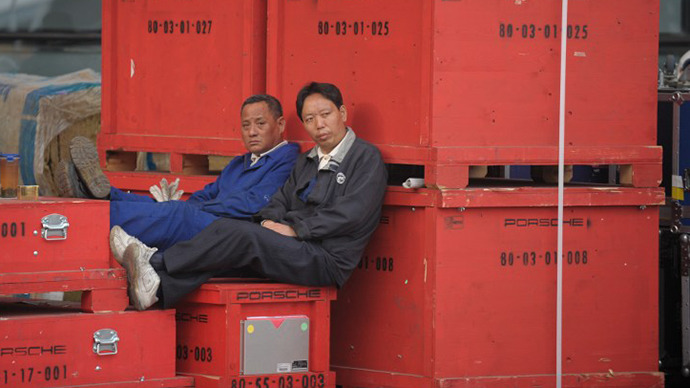Commodity investors lose big on lethargic China

Producers and investors over calculated Chinese demand for raw materials, as its slowing economic growth has cut demand for commodities.
China was given the ‘wrong signal’, Paul Robinson, a commodity director at Sberbank, told Vedomosti.
"Everyone thought that China, which consumes about 50% of global commodities - is a bottomless pit, which will continue to absorb everything. But now the future of China’s growth trajectory is not clear, or the policies of the new government,” Robinson said.
Commodity traders profited enormously in 2012, but the recent slowdown in China is digging into that profit. Sales of the top 10 traders totaled $1.2 trillion in 2013, according to the Financial Times.
Last year commodity traders saw reduced profit connected to the overestimation of China’s consumption. Last year, Glencore recorded a net profit of $3.06 billion, down 41% from its maximum 2007 profit of $5.2 billion.
Cargill’s net profit declined $1.17 billion, and Vitol's profit was down $1.05 billion.
The rise of the Chinese economy has played a large part in the 10-year commodity market boost, and now that it is slowing down, it spells problems for exporters. In the past two months, the S&P GSCI Spot Index of 24 raw materials has dropped 10%.
China’s economic slowdown will not completely
derail the commodity market, according to Ivan Glasenberg, CEO of
Glencore International, one of the world’s largest commodity
trading companies, Vedomosti reported.Galsenberg expects the
Chinese commodity market to grow by 3.5%, a ‘good result’, but he
does “not expect that China will begin investing in
mining.”
General Director of Rusal, Vladislav Solovyev, agrees it is necessary to reduce investment in mining projects.
The Chinese economy slowed 7.9% to 7.7% year-on-year in the first quarter. The performance didn’t meet expected forecast of 8% growth.
The Chinese government forecasts 7% growth for the next five years.
Oil and Gas
Oil and gas markets will also need to cut their production in order to adjust to China’s slowing demand.
“But in order to balance the market, OPEC will have to cut
six million barrels, a record amount since 1980,” said
Christoff Ruehl, chief economist at BP.
The US has a great potential for oil production, and could
possibly produce more oil than Saudi Arabia by 2015, according to
the International Energy Agency. Russia’s oil production grew by
1.2% in 2012 and the US grew at 12%.
Russia is still by far the world’s largest producer of natural
gas turning 10.5 million barrels a day in March. However, low
commodity prices have taken a hit on the Russian economy- also
sending it into a slowed growth trajectory.
“Before the crisis, the main factor in commodities was demand, which stimulated investment, now – overproduction,” said Vladislav Solovyev.














